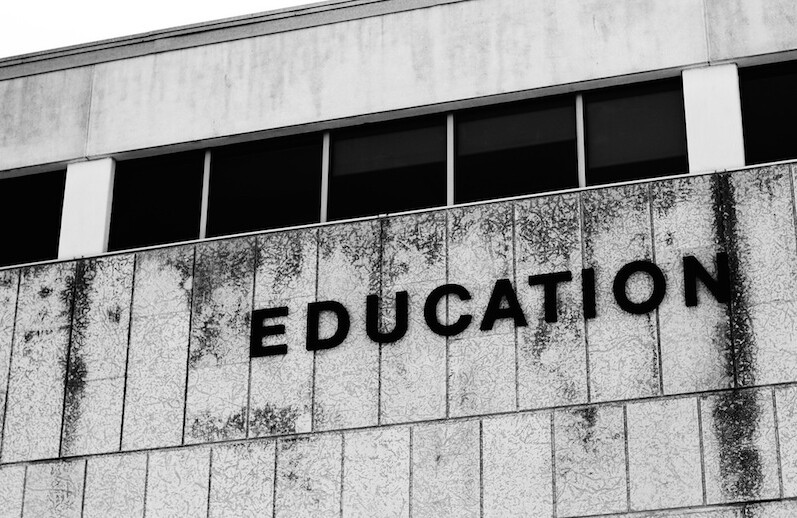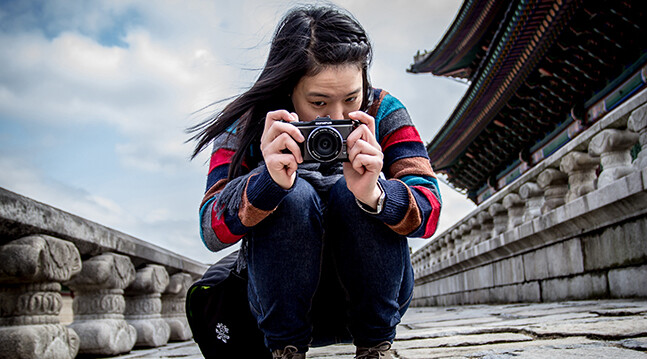"I am a 15-year-old sophomore attending Seoul International School in South Korea. Born in the United States and raised in Asia, I feel my diverse experiences around the world have shaped and concretized my beliefs. I am extremely passionate about public speaking, international relations, and the humanities as a whole. I hope to use my voice and the power of the pen to advocate social causes particularly pertaining to the disenfranchised."--Andrew Yoon
ESSAY TOPIC: In your opinion, what is the greatest ethical challenge facing the world today?
There is a girl in the rural areas of Western China, wiping crystal beads of sweat off her forehead as she cooks whatever's left in the house for her siblings. She is cradled within the silence created by her parent's absence, counting how many days remain until they return from their minimum-wage jobs in Beijing. Amidst the endless financial troubles and the fragmentation of her family, school simply was not an option. If destiny really did exist, hers didn't include an education. There are hundreds of thousands more like her. A few hundred miles away in the sun-scorched outskirts of Kabul, a girl is reprimanded for resisting when she is told that she cannot go to school like her brother. There are hundreds of thousands more like her. Halfway across the globe in Baltimore, a city entangled in poverty and violence, there is a boy whose family's survival hinges on food stamps and is forced to relinquish his dream of being the first in his family to attend college. There are, once again, hundreds of thousands more like him. These are all characters within the same story: a story about individuals who are stripped of the chance at a bigger and better future through education.
Without a doubt, countless other stories deserve to be heard as well: the one about devastated refugees fleeing decimated homes, the one about the unspeakable horrors of religious and ethnic persecution, the one about families subsisting on one meal a day as they cope with the dire truth of poverty, and just about a million more. Yet the issue of education resonates especially clearly as the most pressing ethical challenge of today's generation because time and time again, governments and citizens alike are failing to address education systems that leave millions in the dark. Although education is perhaps the most substantial step toward addressing and eventually tackling the aforementioned global issues, it is perhaps one of the most overshadowed challenges of the century, burrowed beneath more immediate concerns stemming from political turmoil or economic advancements.
Today, governments have become complacent with flawed education systems, and citizens have subconsciously learned to coexist with a reality in which millions of children and young adults across the globe are forced to give up the chance to go to school. We continue to fail to recognize that education is not a privilege. It is a right. And it is an unforgettable ethical failure on our part for allowing this issue to be perpetuated.
The cause, details, and experiences of individuals barred from equal education may all be vastly different, but there exists a common thread intertwined among all who are a part of this narrative of injustice: education is and has always been the key to escaping a vicious cycle of inequality or poverty. On the racial and socioeconomic front, conspicuous gaps in access to education exist among the urban and rural, rich and poor, and along the spectrum of race or ethnicity. In the United States, despite institutional initiatives such as Affirmative Action, which aims to promote college admission among underprivileged minorities, many of these underprivileged individuals do not end up escaping the chains of racial and wealth inequality. Due to the intertwined nature of race and poverty in the United States, poverty is often concentrated in areas with higher percentages of racial minorities, which inevitably leads directly to a dead end. As part of a public education system dependent on local funding and support, such communities will consistently lack the teachers or resources that can sufficiently piece together a high-quality education for its children. Countries with a vast urban-rural divide, including China and India, experience this issue to an even greater extent because rural regions themselves are not equipped with the necessary human capital, technology, facilities, or apparatus.
On the gender front, the chasm is just as substantial. A single glance at relevant statistics is enough to illustrate the disproportionate number of women whose window to higher education is perpetually closed. According to the United Nations, 16 million girls—significantly higher than the number of boys—will never attend school in their lifetime, and girls comprise two-thirds of the 750 million adults who lack basic literacy skills. The root cause of gender discrimination in an educational context varies from country to country. In some, it has emerged out of deeply-rooted religious or cultural ideology, whereby it may be deemed unorthodox or unfitting for women to pursue high levels of education. In others, it is the inevitable result of issues such as early pregnancy or other social pressures that put girls at a disadvantage. In either scenario, however, the numerous barriers obstructing women's access to education have created a stigmatized perception of women that feeds into gender inequality as a whole. Women's rights movements that have emerged in developed nations indicate an increasingly progressive social atmosphere, but many of such movements have been unable to translate into direct and practical results in terms of access to education.
The reality of this pressing issue is ubiquitous; it's plastered across news headlines, emphasized and re-emphasized by international organizations. Yet, the question at the crux of this issue is: Who should be accountable?
The first response should be the government. In 2006, in response to the alarming number of children without access to schools, the Chinese government revised its education law to especially accommodate the needs of children from rural areas. This reform included abolished tuition and other fees—e.g. textbooks or room and board—that rural students usually cannot afford. This legislation reform was an evident attempt to increase access to educational resources, especially in poor or rural regions, where such resources are often nonexistent to begin with. China's leadership actively addressed the nation's vast wealth and gender gaps, and took accountability for the situation of its citizens. But not all governments have made similar efforts, even in the presence of abundant resources. In order to address this ethical challenge, the most influential source of change stems from the government, who should work—through new legislation or reforms to the old—to ensure that children are bolstered by an educational system that is open and fair.
The other answer as to who should be accountable for ensuring education is a little less clear. There is no doubt that in the status quo, there are a number of countries whose first priority cannot be equal education. But if the government is too unstable at the present moment to secure an effective and fair education system due to more immediate concerns, who is accountable? It could be the United Nations, similar international organizations, smaller nongovernmental organizations, citizens, or a combination of all of the above. In any case, those outside of the government are also ethically responsible to respond to the government’s inability to install reforms or work among themselves through grassroots projects on local or national levels in order to initiate a change.
When individuals are barred from attending school due to social and economic pressure, they are closing perhaps the one and only door out of their current situation; they are being forced to let go of a fundamental right. Education is not a privilege. It is a right, and for many more individuals, it is a last chance at change and progress.
To access the other winning essays, click here.

